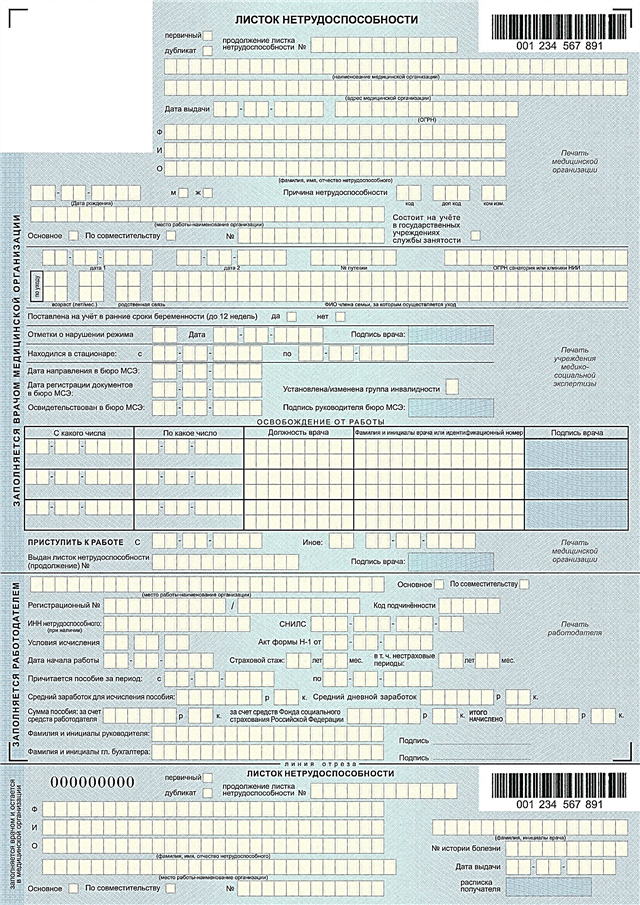Both newly minted and experienced parents argue and argue about disciplinary measures in relation to the guilty child. Perhaps the most popular questions are how to punish a child and is it worth doing it at all?
Some moms and dads use physical pressure, others ignore their offspring for a long time or put them in a corner, others deprive them of the promised privileges, while others generally leave serious misconduct without consequences.
Where are the exposure limits and what offenses should children be punished for? Many psychologists are convinced that it is impossible to raise a child without punishment, but they must take into account his age and the severity of the offense.
Experts advise you to remember important rules of parenting that should be taken into account when choosing the most effective and gentle method of disciplinary action.
Is it justifiable to punish children?
The child, whom mothers and fathers beat for any offense, constantly threaten to give Babayka or a terrible wolf, are left in a corner or a dark room for several hours, they are often boycotted for a long time, you can undoubtedly be called unhappy.
 Such methods of upbringing in the future will surely come back to haunt with a decrease in self-esteem, a feeling of distrust in the world around them, and dislike.
Such methods of upbringing in the future will surely come back to haunt with a decrease in self-esteem, a feeling of distrust in the world around them, and dislike.
We can say that such disciplinary methods used by some parents cannot be attributed to upbringing, in fact, this is common cruelty.
However, absolute permissiveness is also not the best option. If a teenager or a younger child becomes convinced that everything is allowed to him and nothing will happen to him for it, then there will be no differentiation of actions into bad and good.
A very common question of parents is as follows: how to behave if the child does not obey. A separate article by a child psychologist is devoted to this topic.
It turns out that punishment is still necessary, but this understanding does not save parents from mistakes. For some reason, grown-up children begin to remember how they were shouted at in front of everyone, they were unfairly slapped with a belt or put in a corner “just like that”.
The punishment must be effective - it is important that the behavior of the teenager changes for the better and he understands that doing so is completely unacceptable.
Unfortunately, most children do not do something, not because they understand the futility or shortsightedness of their actions, but because they are afraid of being caught and punished accordingly.
Adequate punishment, according to psychologists, has several important tasks, among them:
- correcting dangerous or undesirable child behavior;
- control over previously defined boundaries of what is permitted;
- supporting parental authority;
- compensation for damage caused by the child;
- preventing unwanted actions in the future.
Thus, most experts are inclined to believe that punishment is still necessary. It remains only to understand at what age to do it, for what and how to "punish", and how to demonstrate to the child that his parents still love him.
At what age can children be punished?
As evidenced by developmental psychology, toddlers under two years of age cannot grasp the connection between their misbehavior and parental discipline.
For example, Japanese parents do not punish children under the age of three at all. Until this period, literally everything is allowed to crumbs. But after the age of 3 years, the child's life is strictly regulated, including penalties for misdemeanors.
Despite the age characteristics, strict and clear prohibitions should appear already in the life of infants, which, however, should not be supported by corporal punishment. For example, a child cannot beat his mother or stick his fingers into a power outlet.
Children of one or two years old should also not be punished. At this age, it is better for parents to use a simple distraction, transferring the child's attention to another object or phenomenon. You should also explain the undesirability of this or that behavior, intonationally highlighting the words "no" and "no".
 At about 3 years old, the child enters a crisis period, so parents are faced with protests, the first tantrums, and unwillingness to obey the general rules.
At about 3 years old, the child enters a crisis period, so parents are faced with protests, the first tantrums, and unwillingness to obey the general rules.
It is not always possible to distract the baby, and the punishment is stopping the game or refusing to purchase the required toy.
From three to five years, the first punishments are introduced, since it is during this period that the basic rules and disciplinary measures are established. It is at this age that the child begins to stand in a corner or sit on a chair for the delinquent.
After 6 - 7 years, corporal punishment should be abolished, if such was used before, so children begin to feel humiliated by these measures. On the contrary, parents should discuss misconduct, explain the motives of human behavior with examples, and develop empathy.
For a teenager, it is worth choosing completely different methods of punishment, since teenagers are extremely sensitive to the opinions of others, they are prone to maximalism. As an example - deprivation of privileges or restriction of communication with friends.
Common causes of child disobedience
Many parents are convinced that their children do not obey out of harm, bad character or unwillingness to compromise. However, there are actually many motives and prerequisites for "unworthy" child behavior.
- Age crisis... Psychologists identify several periods of crisis in a child's life: 1 year, 3 years, 7 years, 11-13 years (approximate terms). At this time, changes occur in the psyche and physiological development of children, as a result of which behavior can change for the worse.
- Excessive number of bans... With many restrictions, the child can protest, seeking more freedom. To understand how many prohibitions there are in the family, it is worth counting how many times you say the word "no" during the day.
- Inconsistency... Some parents behave inconsistently, permitting something today and forbidding exactly the same action tomorrow. Naturally, a child is lost in his bearings, commits an offense, but does not understand why and for what he is being punished.
- Inconsistency of words and actions... Sometimes children behave incorrectly, because parents promise, for example, to punish for something, but do not keep their word. As a result, the child ignores the instructions of the parents and does not take them seriously.
- Various household requirements... A similar reason is possible when there is no consensus in the family about prohibitions and permitted actions. For example, a father makes severe demands on a teenager, while a mother, on the contrary, pampers him. In this case, the child may break the "law" on the sly, hoping for the protection of the mother.
- Disrespect for parents... The child grows up, but the parents continue to treat him like a fool, refuse to recognize him as a person. It is not surprising that a teenager begins to protest, violate requirements and prohibitions.
- Inattention... It is not uncommon for children to misbehave just to attract parental attention. Their logic is simple: it is better for the mother to punish for the offense than not even notice and ignore.
Young children are naturally curious, so they often try to figure out what happens if one or another rule is broken. This also needs to be considered.
Why shouldn't a child be punished?
Experts recommend that adults build a kind of gradation of misconduct and disciplinary measures. This will help to understand what children should not be punished for, and when the introduction of "sanctions" is justified and, moreover, mandatory.
Punishment is permissible if the child deliberately commits a prohibited act. The degree of disciplinary action will depend on the severity of the “atrocity” committed. For example, stealing money, beating up a brother or sister, leaving home arbitrarily.
 Before punishment, it is still necessary to identify the motive of the misconduct in order to make sure that such a serious act was committed maliciously, and not out of ignorance, by accident or from good wishes.
Before punishment, it is still necessary to identify the motive of the misconduct in order to make sure that such a serious act was committed maliciously, and not out of ignorance, by accident or from good wishes.
It is not recommended to punish a child:
- for the desire for knowledge: jumping in puddles (to check their depth), disassembling objects (even expensive ones) into parts, examining their own genitals;
- for peculiarities of age and physiology: inability to potty, for hyperactivity, low attention span, poor memory, trouble falling asleep;
- for behavior caused by illness: neuroses, psychiatric diseases;
- for natural emotions: rebellion of three-year-olds, envy of other people's things, jealous manifestations of a brother or sister;
- for careless actions: dirty on the street, spilled milk in the kitchen.
Consider a common situation: a child breaks a kettle from an expensive set. However, when studying this case, it turned out that the baby was going to make tea and pour a mug of this drink to his beloved mother. Is the punishment justified in this situation?
No, because the act was initially positive, and the child came from the best intentions. On the contrary, the baby needs to sympathize, support and help, suggesting how to avoid such mistakes in the future.
Dr. Dobson's opinion
The author of several popular books on parenting, James Dobson is a renowned Christian psychologist from the United States.
 You can relate to his views in different ways (Dobson is a supporter of physical punishment), but he formulated 6 principles that deserve a separate discussion.
You can relate to his views in different ways (Dobson is a supporter of physical punishment), but he formulated 6 principles that deserve a separate discussion.
- Primarily, you need to set boundaries, and only then require them to be observed... Only in this case will the child consider the punishment just. The conclusion is simple: if the parents did not stipulate the rules, they cannot be required to be followed.
- If children are provocative need to act decisively... The helpless behavior of the parents, the inability to resist the little "aggressor", the unwillingness to go to conflict is perceived as weakness, as a result of which the authority of the adult is reduced.
- One should distinguish self-will from irresponsibility... If the child has forgotten about the request or did not understand the requirements, it should not be punished. Children's thinking and memory are not as developed as in adults. So irresponsible behavior requires patience, not punishment.
- Require only what the child can actually accomplish... For example, children should not be punished for a wet bed or a broken toy. After all, this is either a feature of development, or a process of cognition, therefore, it is worth treating failures philosophically.
- Parents should be guided by love... Before taking disciplinary action, you need to understand the situation, stay calm and remember your warm feelings for your child. Only in this case can parental strictness be justified.
- After punishment and exhaustion of the conflict situation you need to console the teenager and explain the motives of your act... The parent should make peace with the child, tell him that you love him and experience negative emotions because of the need to punish him.
Thus, the rules described by James Dobson are able to reduce the scope of the use of strict "sanction" measures, to lay love and warm feelings at the basis of parent-child relationships.
9 general principles of "correct" punishment
Another task of punishment is to help children sort out their feelings and actions, and also to avoid repeating such mistakes in the future.

For "retribution" to have a positive effect, it is necessary, regardless of the age of the child, follow some rules:
- Follow the sequence... The punishment must follow the same deeds. Also, you should not ignore children's disobedience, even if you have no time or you do not know how to behave in this case.
- Consider the severity of the offense... A little mischief or first-time misconduct should only deserve a warning. Bad behavior (malicious or willful) must be followed by a serious reaction.
- Limit the length of punishment... Always provide the duration of the disciplinary action, or the child will soon lose the link between the offense and the month-long restriction.
- Act calmly... First of all, you need to calm down, and only then approach the choice of punishment. Otherwise, inadequate measures may be applied.
- Agree with your spouse... To exclude manipulation, you need to agree on all the rules, restrictions and punishments with your husband or wife.
- Show a positive example... For a child to behave correctly, you need to show examples of the desired behavior. Politeness and honesty are welcome.
- Consider the characteristics of the child... For example, a melancholic should be punished less severely (or in a different way) than a sanguine person. The age of the offender should also be taken into account.
- Punish your child in private... This should be praised in public, but the punishment should only concern you and the child. Such solitude is needed so as not to injure children's self-esteem.
- Develop a ritual of reconciliation... It will be helpful to develop a special rite that will mark the end of the punishment. For example, you can read a poem, weave your little fingers. The latter option, by the way, is even good for health.
Another important and relevant information that explains why you can't yell at a child. All parents need to know this!
Punishment is only a small and not the most significant part of raising children. It is imperative to reward the child for good deeds, thereby encouraging character traits such as kindness, politeness, and hard work.
Constructive methods of punishing a child
So, the basic rules for the application of disciplinary measures are known. Now it remains to figure out how to properly punish the child and which loyal methods of punishment can be incorporated into your parenting arsenal.
- Deprivation of privileges... This method is especially suitable for a teenager. Restricting access to a computer or TV can be used as a punishment.
- Correction of the committed... If the child deliberately painted the tabletop with a felt-tip pen, hand him a rag and detergent - let him correct his mistake.
- Time-out... The little "bully" is put in a separate room for a few minutes (one minute for each year). There should be no toys, laptop, cartoons in the room.
- Apology... If your child has offended someone, you need to make him apologize and, if possible, correct the situation. For example, draw a drawing instead of a torn picture.
- Ignoring... More suitable for small children, but this method cannot be used too often. Refuse to communicate with a mischievous child, leave the room.
- Gaining negative experiences... In some situations, you need to allow the child to do what he wants. Naturally, you need to make sure that the child does not harm himself.
- Limiting communication with peers... In the event of a serious misconduct, it is worth imposing a “curfew” for a short time, limiting the child's communication with friends.
- Empowerment... In response to his misconduct, his parents assign him “community service”. This can be an extraordinary dishwashing, cleaning in the living room, etc.
Do not forget about another effective method - censure and condemnation. Taking into account the age and severity of the offense, parents talk about why the child's behavior is wrong and what unpleasant feelings it has caused.
Prohibited techniques
Knowing how to punish your child correctly is really important. However, it must be understood that there are certain taboos when it comes to choosing disciplinary measures.
Misbehaving adults can lead to protests, learning difficulties, isolation and unwillingness of children to communicate with their own parents. Resentment can also spread to the future.
 What are the extremes to avoid when imposing punishment? Experts advise avoiding a few kinks:
What are the extremes to avoid when imposing punishment? Experts advise avoiding a few kinks:
- Humiliation... The disciplinary measure chosen must not in any way degrade the dignity of the child. That is, you cannot say that he is a fool, a fool, etc.
- Harm to health... We are talking not only about flogging, but also about such cruel methods of education as squatting, pouring cold water, and forcing them to starve. You also can't put children on their knees in a corner.
- Simultaneous punishment for several mistakes... The correct principle is one "sin" - one punishment. It is best to punish for the worst offense.
- Public punishment... As already noted, punishment in public inflicts psychological trauma on the teenager or harms his reputation in the children's team.
- Unjustified refusal to punish... Be consistent: if you decide to take action, keep your promise. Otherwise, you risk losing credibility.
- Delayed punishment... You can't make a child wait, suffer because of the expectation of an inevitable "punishment", imagine what awaits him. This is a kind of moral abuse of children.
In addition, restrictions and punishments cannot be applied as revenge or a preventive measure. It is important to approach this process extremely carefully and thoughtfully. After all, the main task is to improve the behavior of the child, and not spoil the relationship with him.
Is physical punishment permissible?
Probably not a single issue of parenting methods of education causes such a heated discussion as bodily influence on a child. Many experts strongly oppose such a disciplinary measure, but some parents still use it.
 Usually mothers and fathers give the following argument as an excuse: "My parents beat me, and nothing - I grew up no worse than the rest."
Usually mothers and fathers give the following argument as an excuse: "My parents beat me, and nothing - I grew up no worse than the rest."
Additionally, numerous Russian sayings and proverbs come to mind that approve of spanking. Like, hit the child while it is placed across the bench ...
However, opponents of physical punishment give other arguments that seem, perhaps, more "reinforced concrete". In addition to the fact that punishing a child with a belt is painful and offensive, one should also remember the likely results of such a method of education.
So, the consequence of the use of bodily influence can be:
- injury to a child (due to excessive use of force);
- psychological trauma (fears, low self-esteem, social phobia, etc.);
- aggressiveness;
- the desire to rebel for any reason;
- desire for revenge;
- spoiled parent-child relationships.
Thus, a father's belt is not the best way to raise children. Cruelty will certainly make itself felt, even if the problems do not appear now, but in the distant future.
For more information about why you cannot beat a child and what disastrous consequences parental cruelty can lead to, read the article by a child psychologist.
Many experts are convinced that it is worth distinguishing between cruelty and light physical impact on a child in order to stop unwanted behavior.
As an example, we can cite such a situation when a frightened mother in her hearts spanks her little child, who ran out onto a busy road and almost fell under the wheels of a vehicle. It is believed that such bodily influence does not humiliate children, but attracts attention.
As a conclusion
Punishment is an ambiguous method, therefore there are many opinions and judgments about the possibility and desirability of its application. You should summarize the above and voice the most important and useful thoughts.
- There is no perfect child. A kid is a person who has desires that do not always coincide with the requirements of their parents. The result of this contradiction is punishment.
- It makes no sense to punish children under 2 - 3 years old, since they do not yet understand the relationship between their act and parental influence.
- It is important to consider the possible reasons for disobedience, sometimes knowing the motives leads to the refusal to use punishment.
- You can not punish children for the desire to know the world around them, for the desire to help or careless actions. Malicious actions, however, must be punished.
- All questions regarding disciplinary measures must be agreed with all family members.
- It is better to use constructive methods of influencing the child, which should help to correct the child's behavior.
- Physical punishment (if possible), threats, abusive actions should be abandoned. The wrong is to be condemned, not the personality of the child.
The question of how to punish a child for disobedience or serious misconduct should be decided independently by each parent. The most important thing in such a situation is to choose the most constructive method that will help change children's behavior.
However, one should not go too far with disciplinary measures. It is best to explain to the child, without screaming and punishing, why his behavior is wrong and how to behave in a given situation. Parental advice, spoken with respect, will certainly be heard by children.



